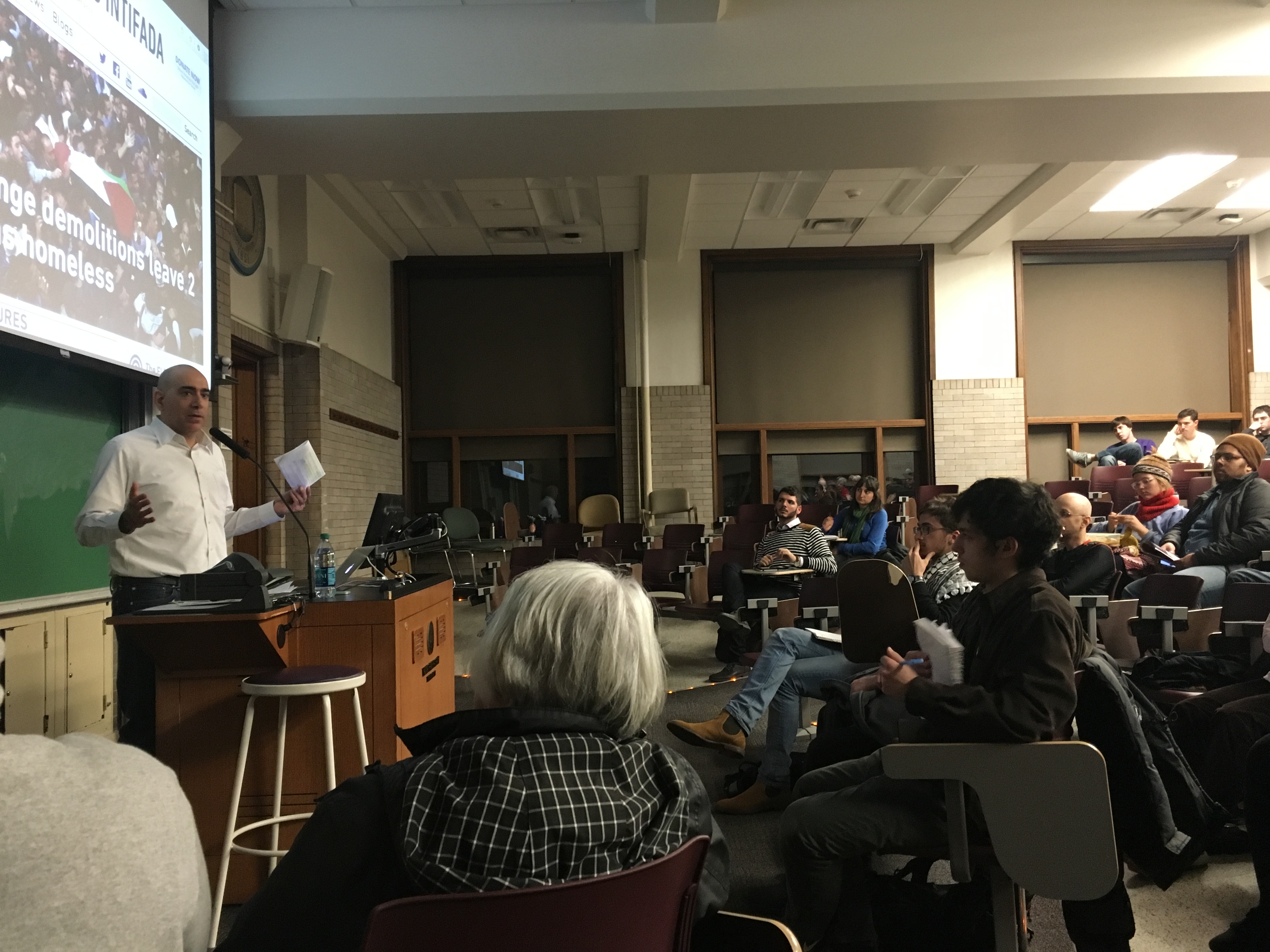
Students for Justice in Palestine (SJP) hosted journalist Ali Abunimah for their fall speaker event, bringing in about 75 audience members, including NU students, Purdue’s SJP chapter and older community members. Abunimah founded the online publication Electronic Intifada and wrote the book One Country: A Bold Proposal to End the Israeli-Palestinian Impasse.
Abunimah began his talk by addressing current events in Syria, Beirut and Paris, among other regions of the world. He emphasized the Muslim community’s opposition to ISIS, referencing a recent Pew Research survey that concluded that the vast majority of Muslim populations are “reviled” by ISIS.
“They have been blowing up mosques,” Abunimah said of ISIS. “They demolish mosques of Muslims they don’t like.”
However, after the Paris attacks, the Israeli Prime Minister Benjamin Netanyahu called upon the world to recognize that “the same radical Islam” is behind both the Paris attacks and the violence perpetrated by Palestinians in Israel and the Palestinian Occupied Territory, Abunimah said.
Abunimah then spoke about what he viewed as the unequal treatment of Palestinians under Israeli rule.
“There is nothing you can do as a Jew that will get your home demolished,” Abunimah said, drawing a comparison to recent events in which Palestinian homes were demolished by the Israeli Defense Force (IDF) in “punitive demolitions.”
He later added, “I don’t want anyone to accuse me of bias or not giving both sides." Abunimah then outlined what he sees as the two subjective narratives of the Israeli-Palestinian conflict; one, he said, belonged to Netanyahu, while he ascribed the other to the Brazilian scholar Paolo Freire.
For Abuminah, Netanyahu's policy believes that “Palestinians are basically part of a wild mass of jihadists that is undifferentiated, that is the same motivation of those attackers in Paris. All these thing we’re [the Israelis] doing are not provoking them, but making us safer."
On the other hand, Abunimah described Freire's belief that the Palestinians sometimes use violence to fight back against their oppression by the Israelis.
However, despite Abunimah's comments, students still had conflicting views of the event.
“I mean, obviously, it was very one-sided. I think it’s just difficult to give an entire hour-and-a-half long talk without mentioning Hamas once,” said Weinberg sophomore David Gordon.
Asma Bahrami, a student from SJP Purdue, disagreed: “I think he was very articulate, and he did a good job of showing both sides and not bringing emotion into it."
In a Q&A, Abunimah expressed his dissatisfaction with the J Street lobby because they only ostensibly oppose the occupation, but not other Israeli policies. J Street U Co-Chair Tal Axelrod, a Medill senior, said the event “gave [him] a lot to think about.”